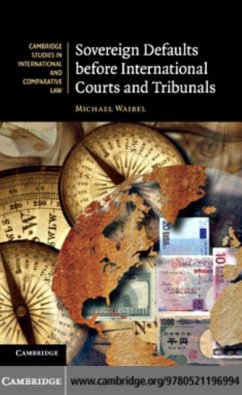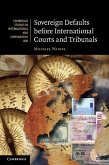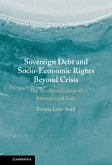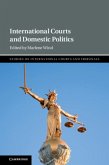International law on sovereign defaults is underdeveloped because States have largely refrained from adjudicating disputes arising out of public debt. The looming new wave of sovereign defaults is likely to shift dispute resolution away from national courts to international tribunals and transform the current regime for restructuring sovereign debt. Michael Waibel assesses how international tribunals balance creditor claims and sovereign capacity to pay across time. The history of adjudicating sovereign defaults internationally over the last 150 years offers a rich repository of experience for future cases: US state defaults, quasi-receiverships in the Dominican Republic and Ottoman Empire, the Venezuela Preferential Case, the Soviet repudiation in 1917, the League of Nations, the World War Foreign Debt Commission, Germany's 30-year restructuring after 1918 and ICSID arbitration on Argentina's default in 2001. The remarkable continuity in international practice and jurisprudence suggests avenues for building durable institutions capable of resolving future sovereign defaults.
Dieser Download kann aus rechtlichen Gründen nur mit Rechnungsadresse in A, B, BG, CY, CZ, D, DK, EW, E, FIN, F, GR, HR, H, IRL, I, LT, L, LR, M, NL, PL, P, R, S, SLO, SK ausgeliefert werden.









